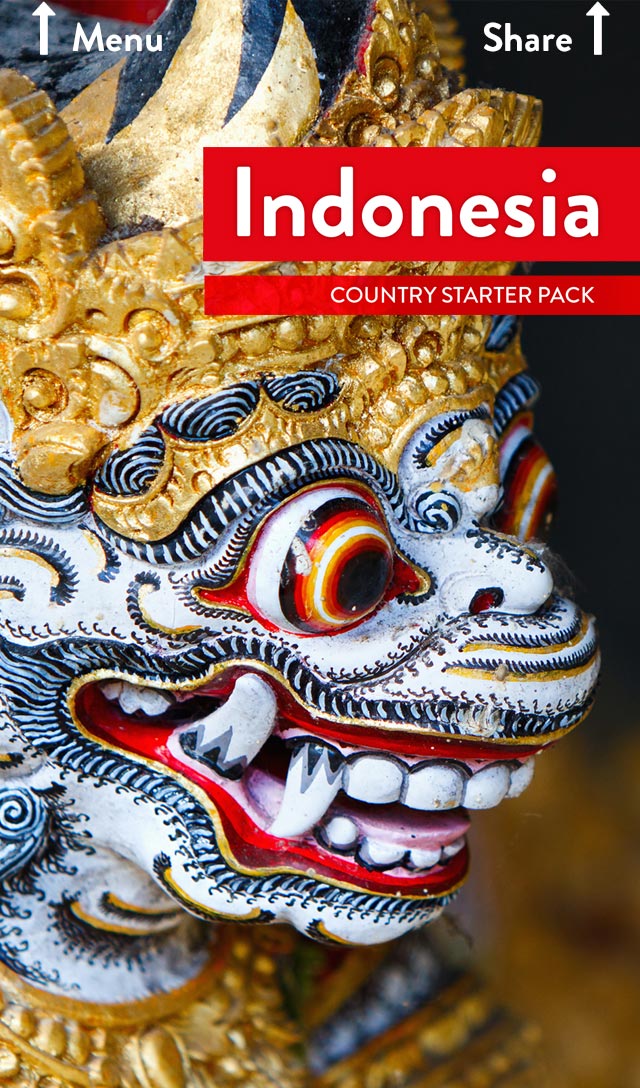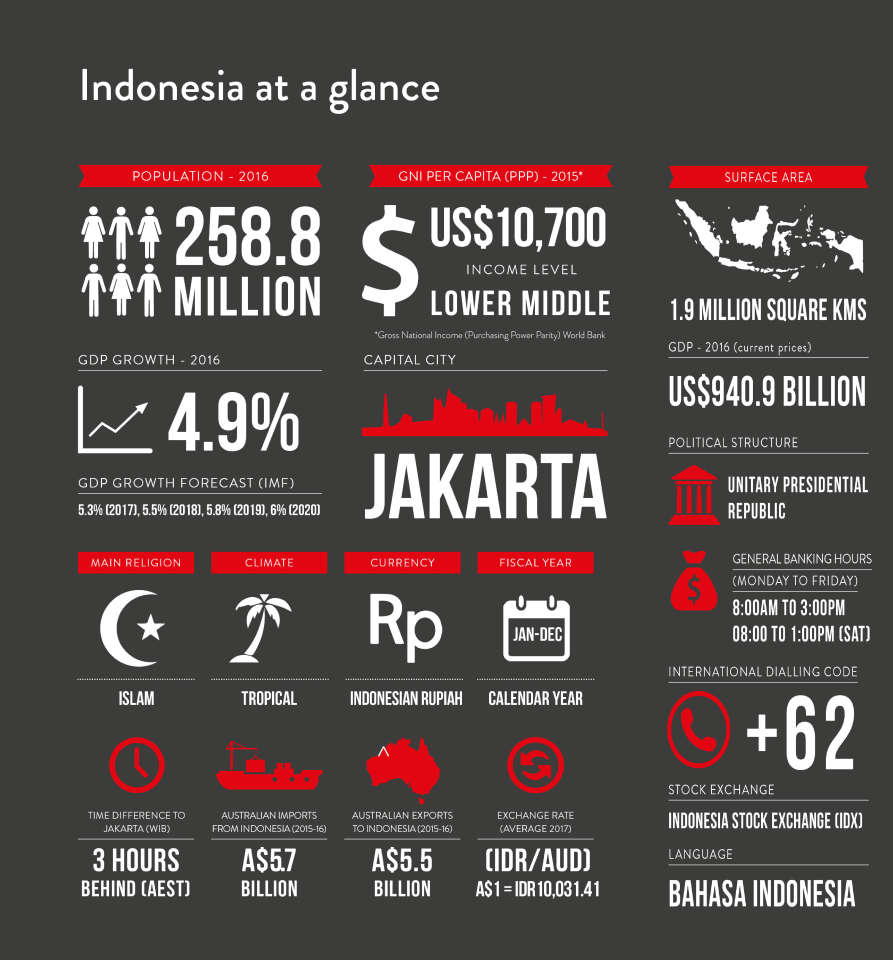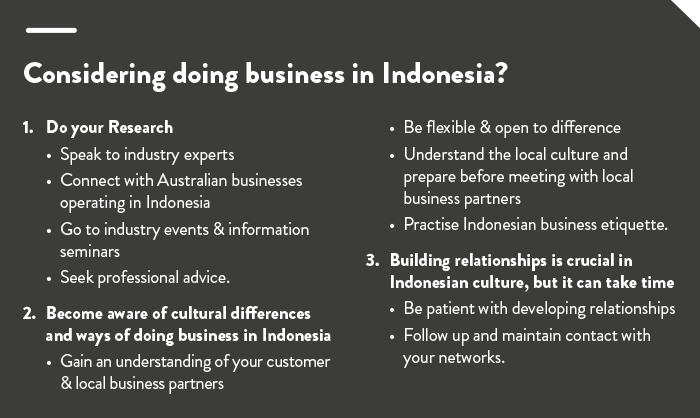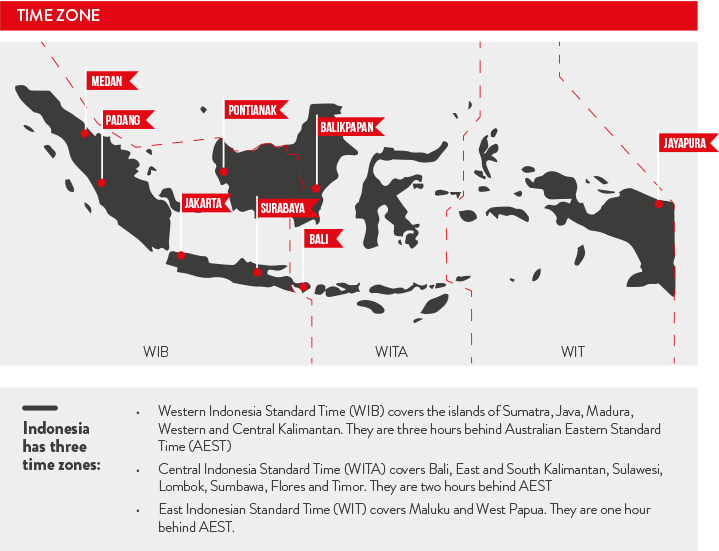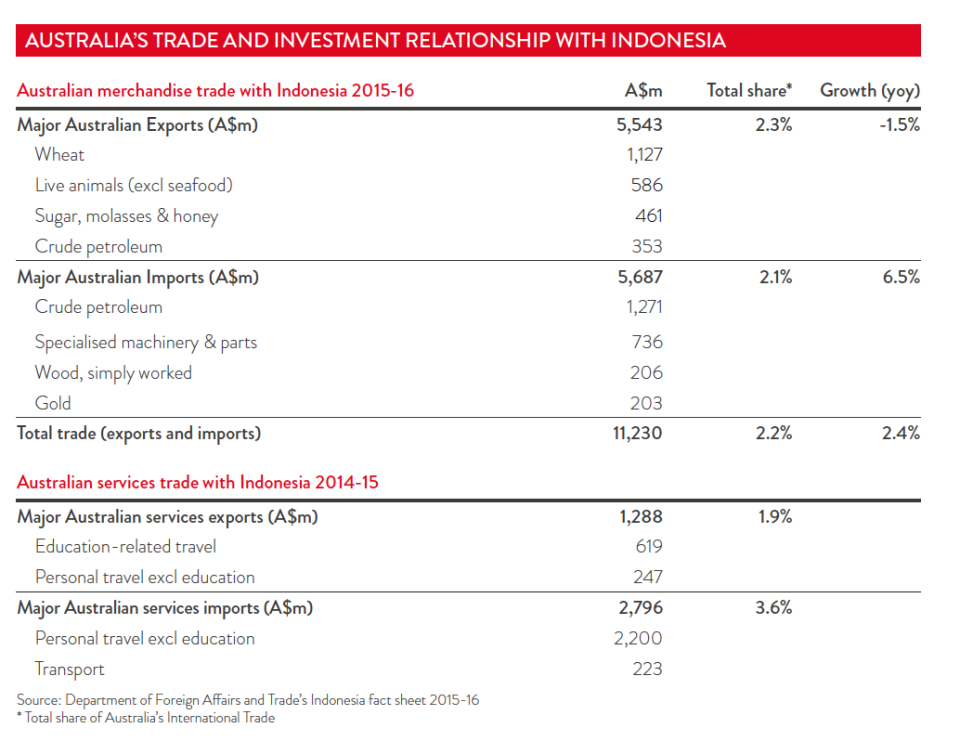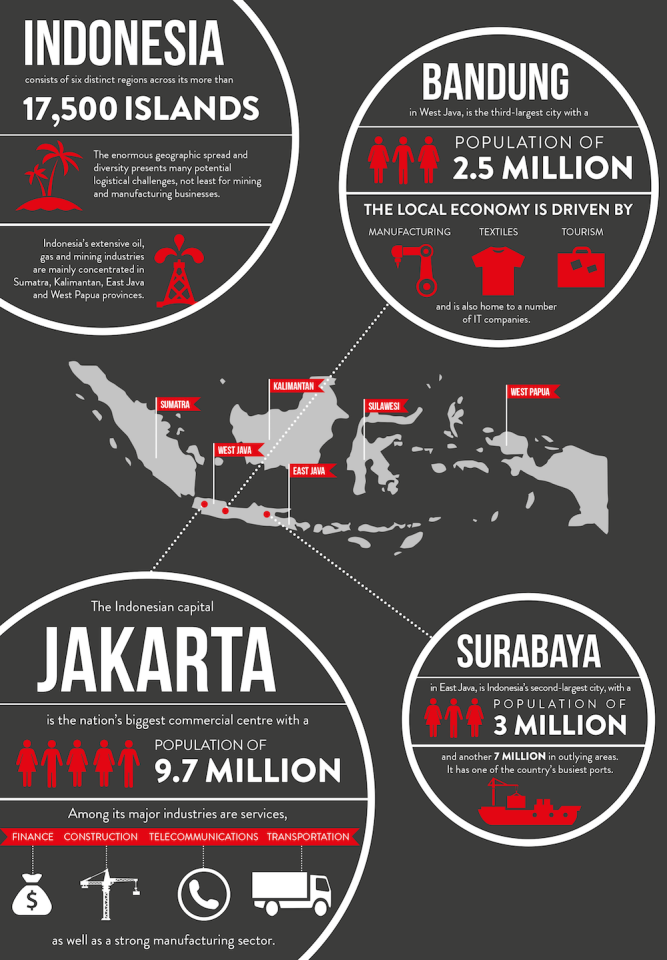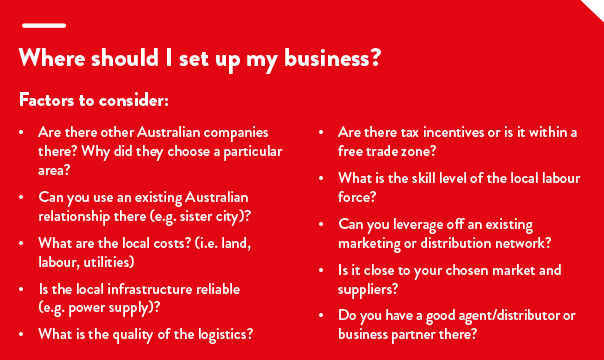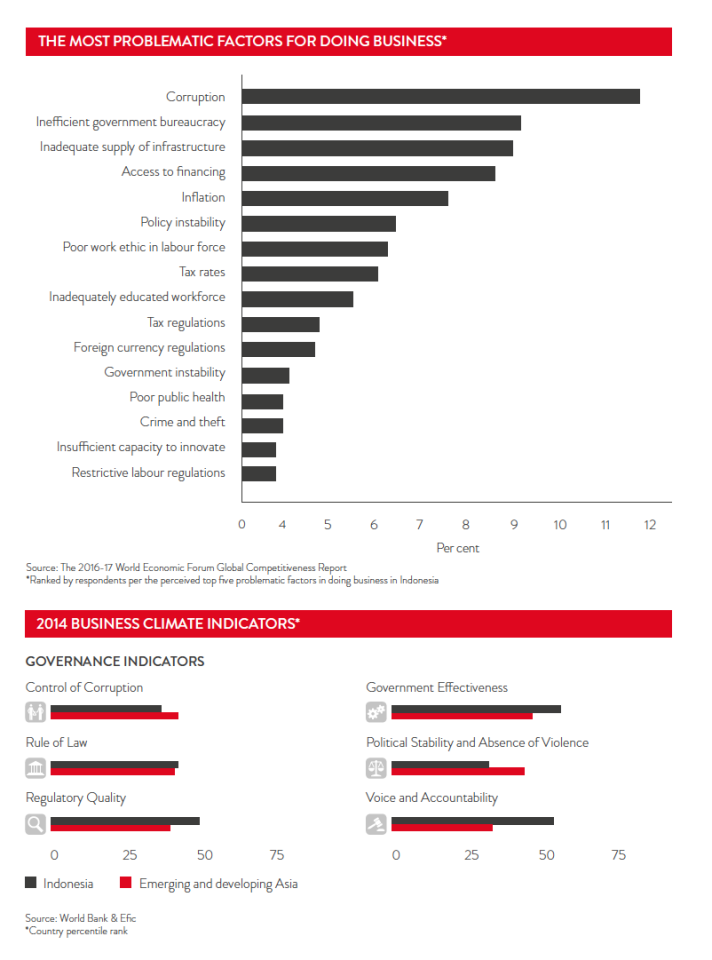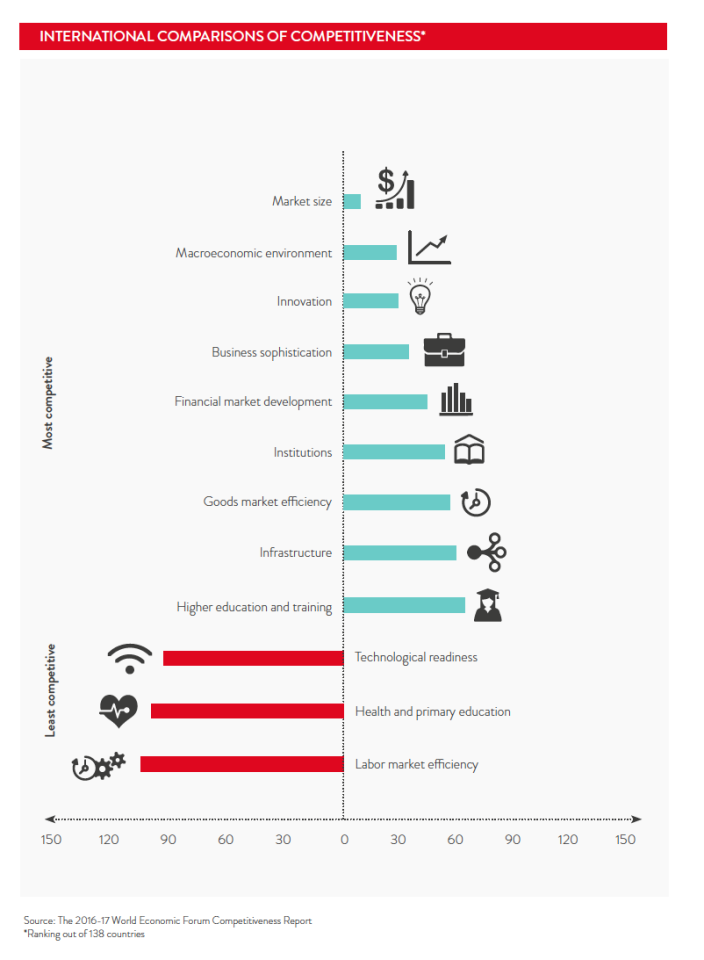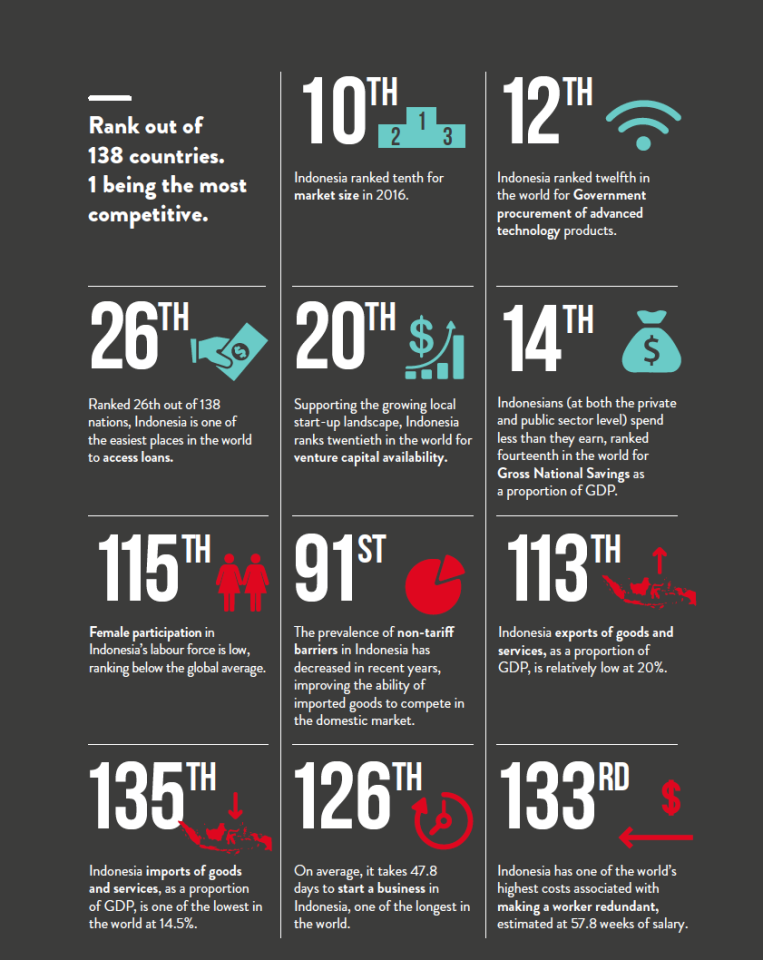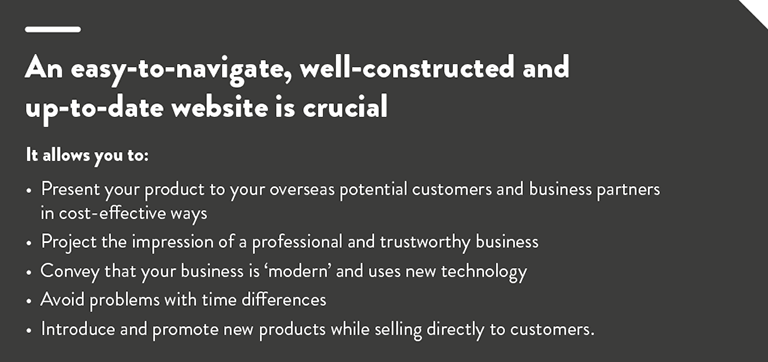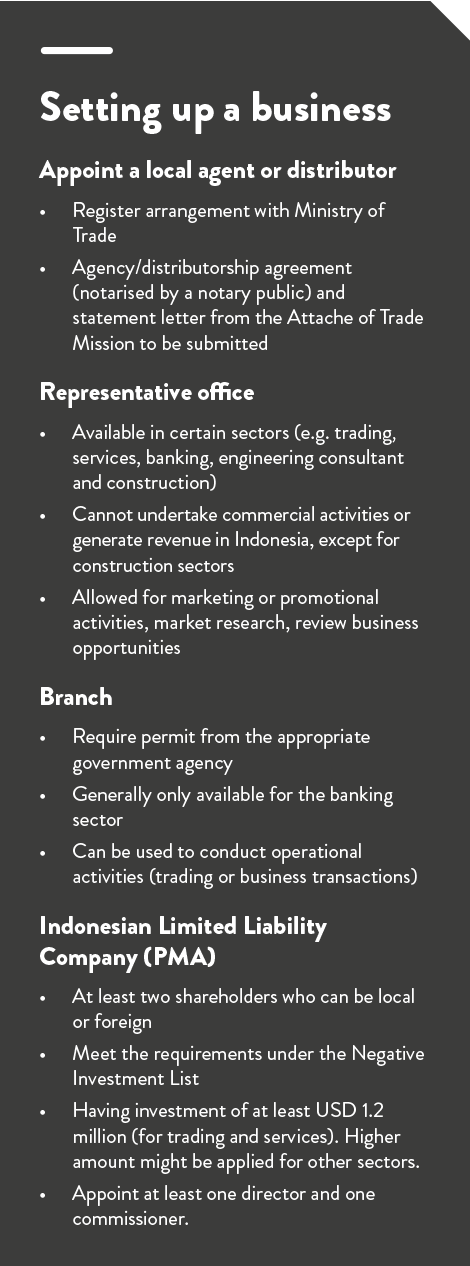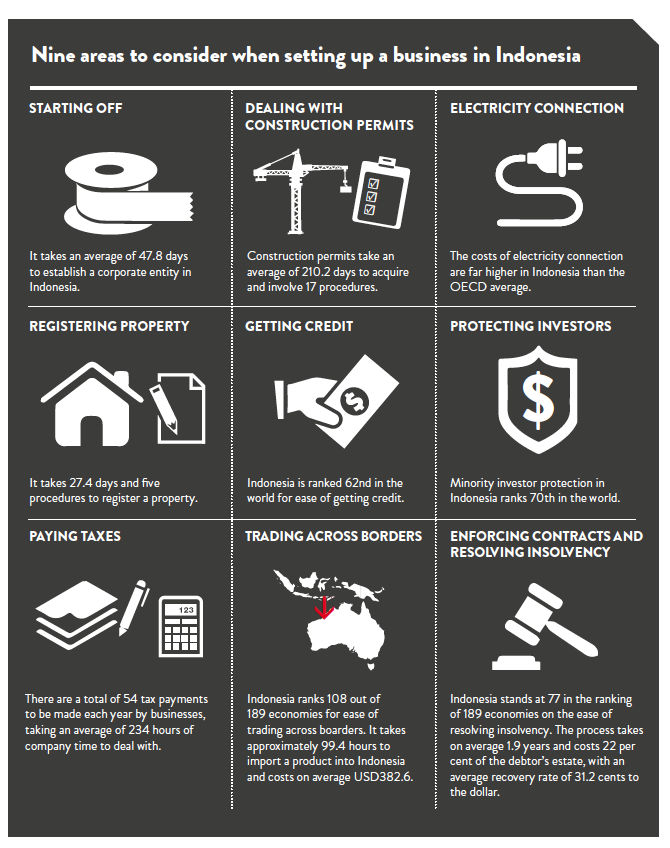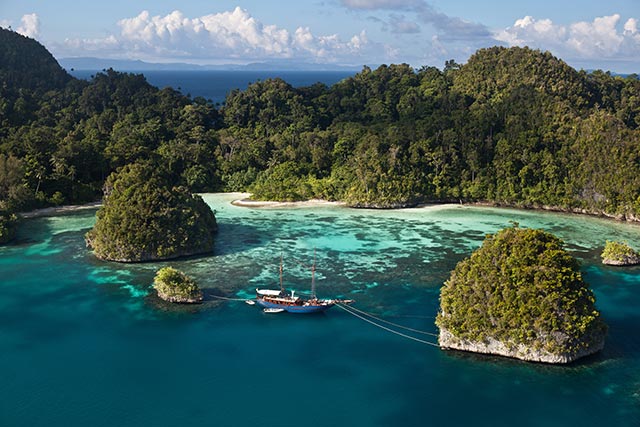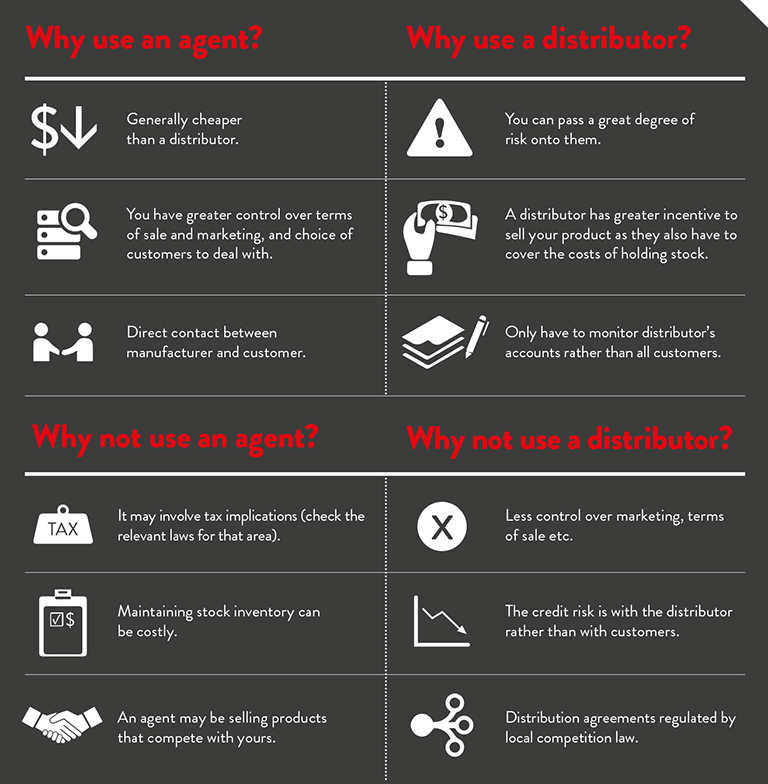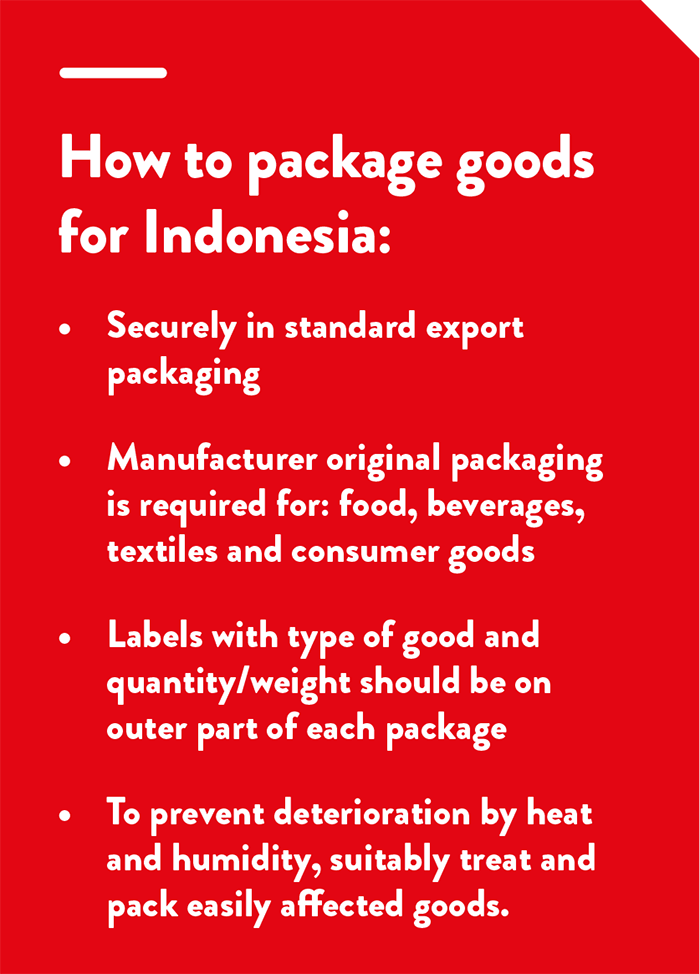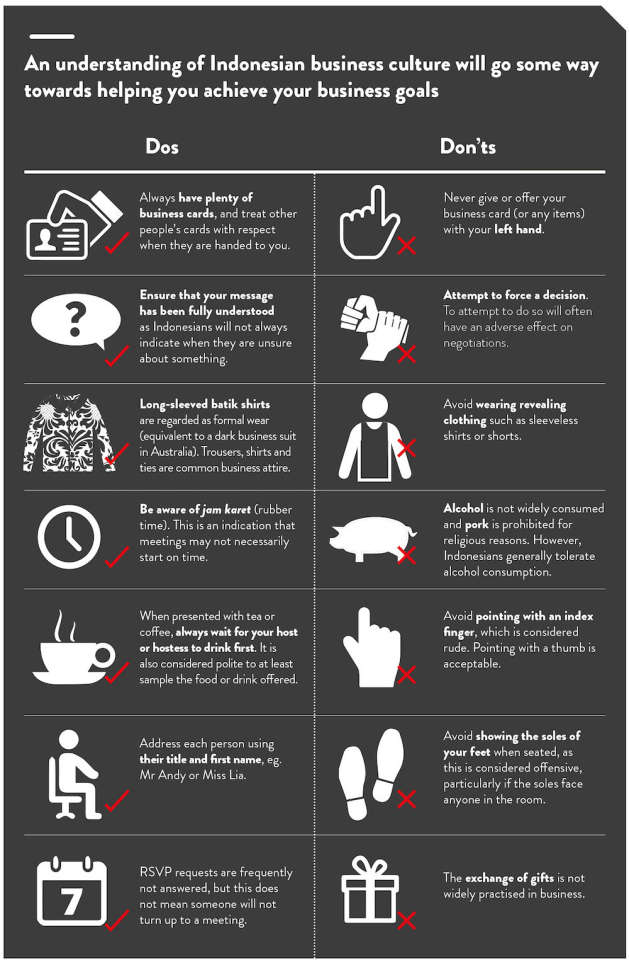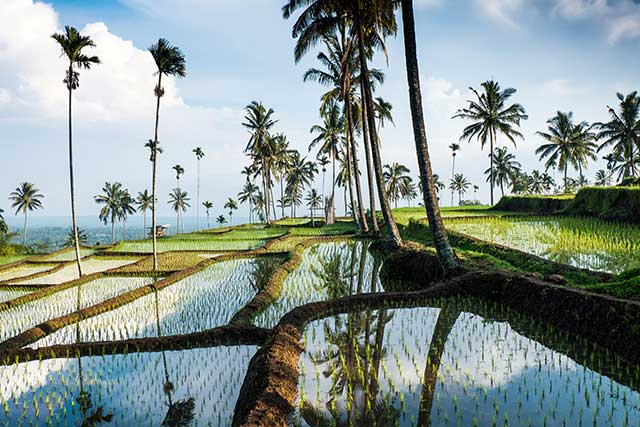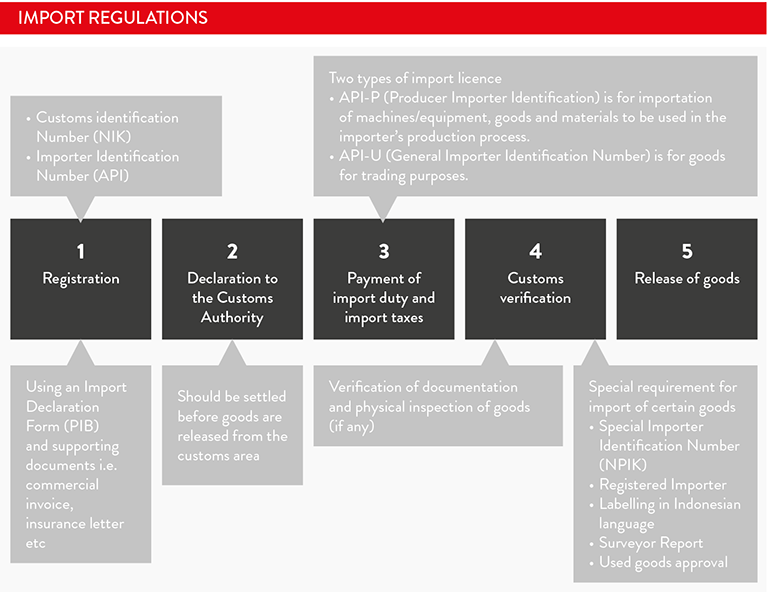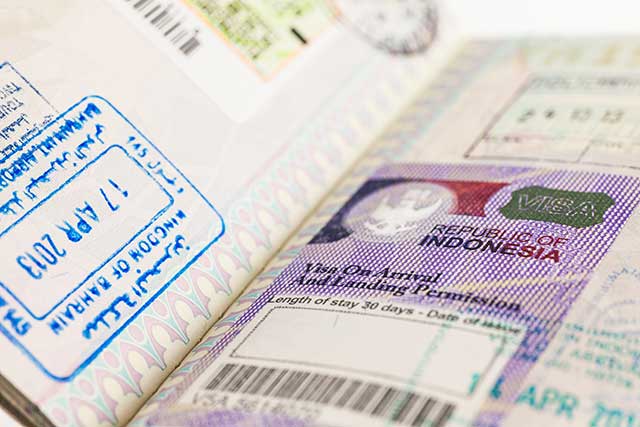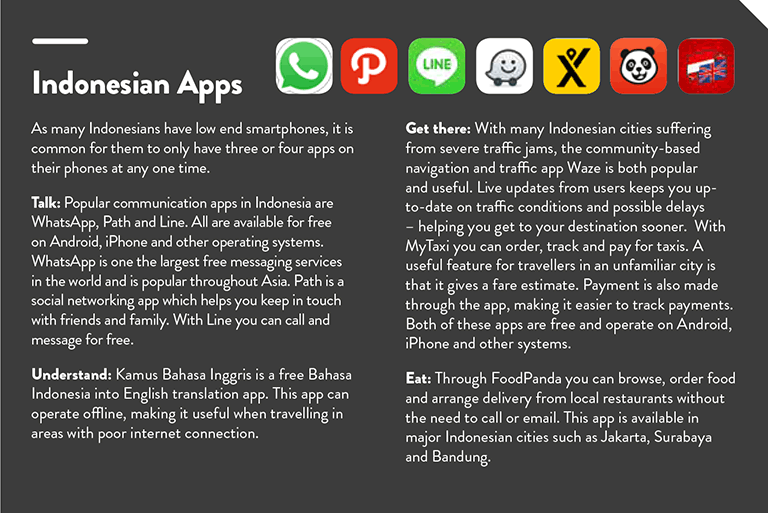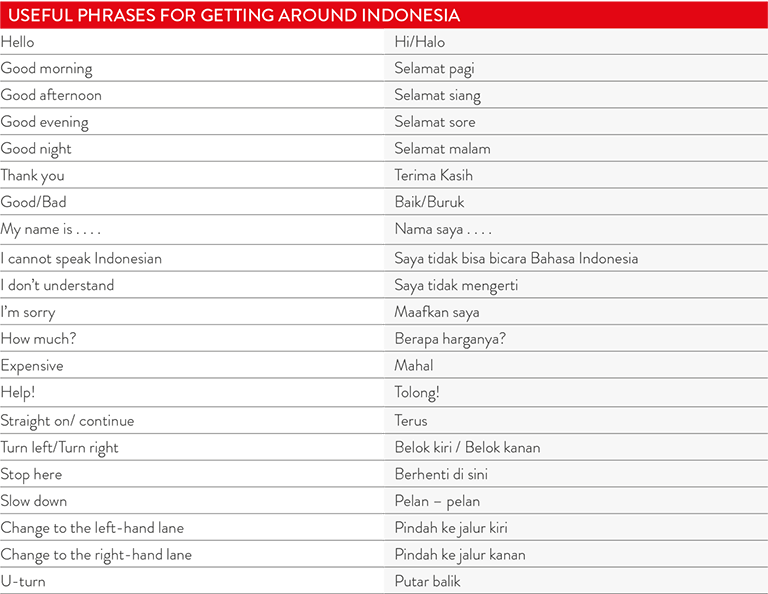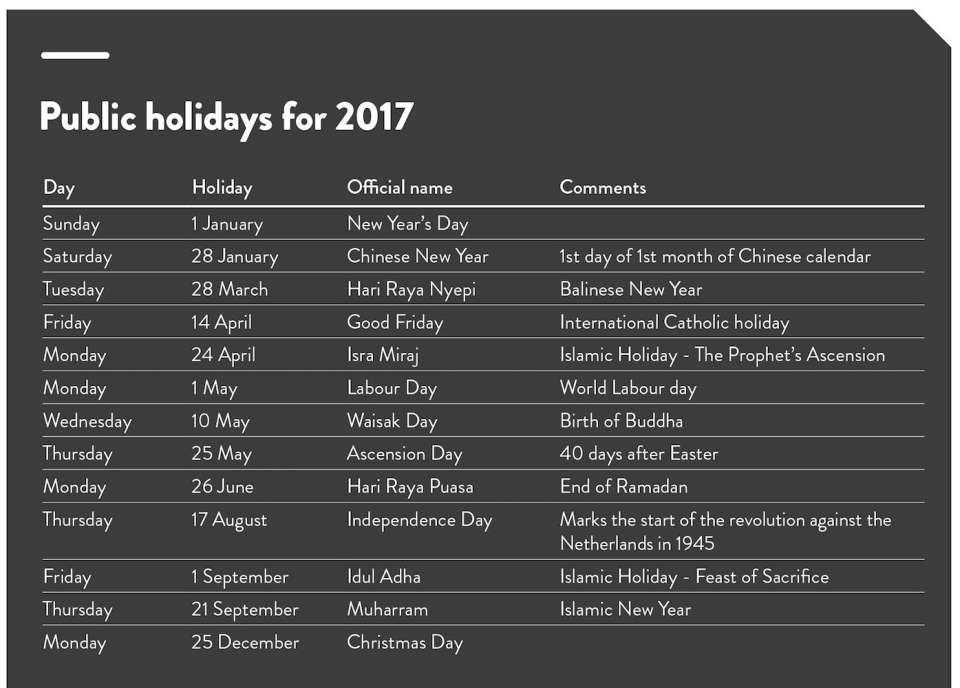1.2 Indonesia at a glance
Geography
Indonesia is a sprawling tropical archipelago of approximately 17,500 islands. The biggest and most heavily populated islands are Java, Sumatra, Kalimantan (Borneo) and Sulawesi, along with the tourist islands of Bali, Lombok and Komodo. Java is home to almost 60 per cent of the population, including the capital Jakarta, which has a population of more than nine million.
Culture
Three distinct elements – the family, social harmony and religion – underpin Indonesia's national culture. Foreign businesses that want to succeed in Indonesia should understand and embrace these cultural influences.
Indonesians place a high value on social harmony and consensus. Maintaining “face" in public situations is paramount. All parties expect to be treated respectfully and displays of aggression or rudeness are considered unacceptable. In situations requiring negotiation or decision-making, it is important to achieve a consensus that maintains face for all parties. Negotiations may be slowed by indirect expressions of differences in opinion, and a reluctance among Indonesians to use direct words like “no".
Religion is an important part of everyday life in Indonesia. About 85 per cent of the population is Muslim, but there are also significant Christian and Hindu populations. The vast majority of Indonesian Muslims observe a moderate form of Islam.
Politics and government
The Republic of Indonesia is an independent nation state headed by a President and Vice-President. The President is head of state and government as well as commander-in-chief of the armed forces. The republic's highest authority is invested in the People's Consultative Assembly (MPR). The MPR comprises two houses, the 560-member People's Representative Council (DPR) and the 132-member Regional Representative Council (DPD). The DPR passes legislation and monitors the executive branch of government. The DPD is a relatively new chamber that deals with regional issues. The current President is Joko Widodo.
Economy
The Indonesian economy is the largest in Southeast Asia and the 16th largest in the world, with annual gross domestic product (GDP) valued at approximately USD940.9 billion (2016). Looking forward, annual average GDP growth is forecast at 5.7 per cent for the period 2017 to 2021, putting Indonesia on track to join the club of trillion dollar economies within just a few years.
In 2014, the services sector was the most prominent employer in Indonesia, accounting for 45% of local workers (compared to only a third in 1990). This was followed by the agriculture sector which employs 34% of local workers (down from 56% in 1990) and the industry sector (including manufacturing) which accounts for 21% of local workers (having become more prominent in recent years).
In terms of Indonesia's output, the industrial sector accounted for 40 per cent of GDP in 2015. Significant foreign direct investment and government incentives have positioned the industry for future growth. Major industrial sectors include petroleum and natural gas, textiles and apparel, mining, footwear, plywood, rubber and chemical fertilisers. The services sector is equally as important to Indonesia's economy, accounting for 43 per cent of GDP in 2015. Agriculture on the other hand only accounted for 14 percent.
Indonesia's economy is largely driven by domestic activity rather than exports, which helped to cushion it from the global crisis of 2008-09. Its main trading partners are Japan, China, Singapore and South Korea, and its most important export commodities are oil and gas, minerals, crude palm oil, electrical appliances and rubber products.
Legal system
The Indonesian legal system is a civil rather than common law system, and contains procedures that are quite unlike Australia's.
Like other civil law systems, Indonesia's does not have juries. Instead, decisions on guilt or innocence are made by panels of three judges who usually produce a single, joint judgment. Indonesia's justice system has significant challenges – including some conflicting laws and regulations – which can make the enforcement of contracts difficult. The government has made progress in recent years to improve the system.
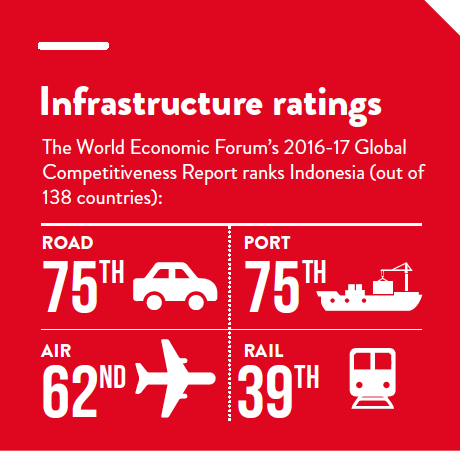
Infrastructure
Despite recent efforts to increase investment, Indonesia scores comparatively poorly on global and regional rankings of national infrastructure.
The low score on air transport comes despite development of an extensive network of airports to ensure that all Indonesia's islands are accessible by either sea or air. As an archipelago, Indonesia is dependent on sea transport. It has 1700 sea ports. The country's rugged terrain has made the development of inland transport infrastructure difficult. Road vehicles are the predominant mode of transport in Indonesia, but road infrastructure remains below that of its regional peers, despite significant investment.
For a middle income country, Indonesia has a comparatively high rate of electrification. As of 2012, 96 per cent of the population has access to electricity.
Telecommunications is a bright spot on Indonesia's infrastructure scene, increasing connectivity across Indonesia and helping stimulate other sectors of the economy. As of mid-2015, smartphone penetration in Indonesia was still low, at 30 per cent, lagging far behind regional neighbours, including China which reports 80 per cent.
Telecommunications is one of a number of priority infrastructure areas being targeted by the Indonesian government to support its economic growth targets. Others include the power and energy sectors, water and sanitation, and roads and transportation.
For more information, access the full Indonesia Country Starter Pack
